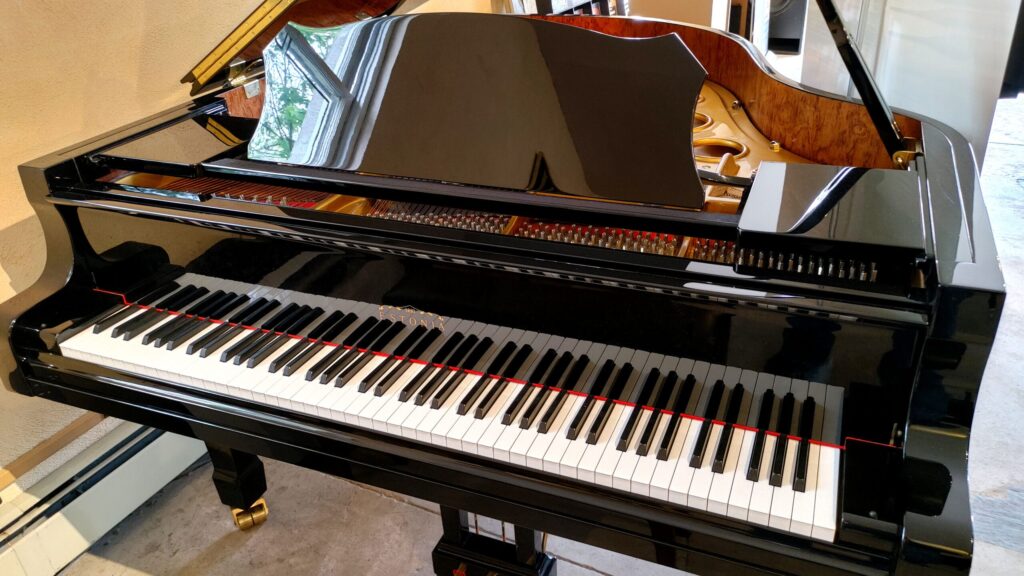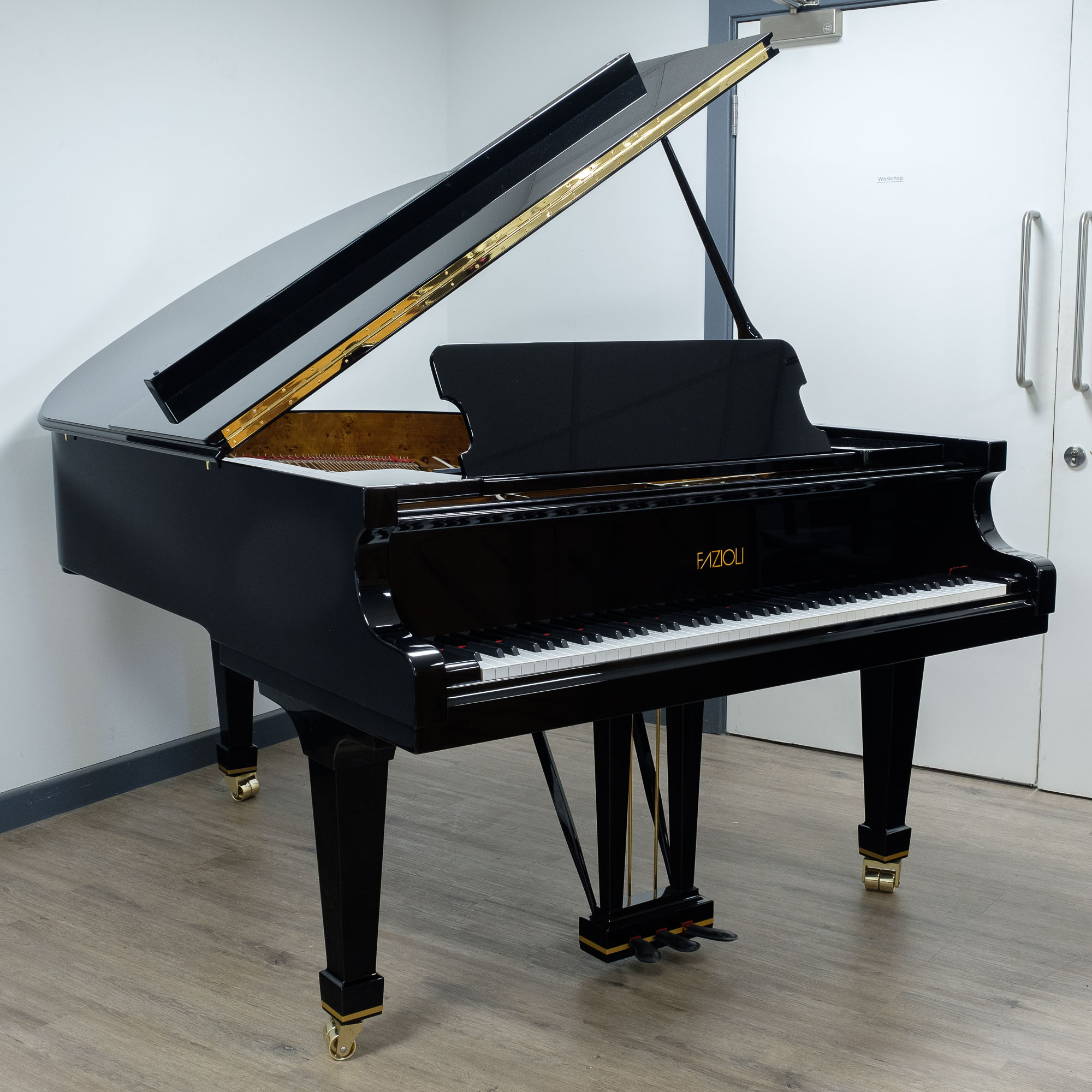Is it just me, or does finding a good piano that won’t break the bank seem like an impossible task? As someone who has been in the market for a piano before, I know firsthand how overwhelming and confusing it can be. With so many options out there, one question often pops up in my mind: Are used pianos worth anything?
In this article, we’ll dive deep into the world of used pianos and uncover the surprising truth behind their value. From understanding what makes a piano valuable to debunking common myths about buying used instruments, I’m here to share my expertise and experience with you. Whether you’re a beginner looking for your first piano or an experienced musician searching for your next upgrade, this article is for you! So let’s get started and find out if those old pianos collecting dust are really worth anything after all.
So, are used pianos worth anything?
The value of a used piano depends on several factors, such as its age, condition, brand, and market demand. While some may argue that a used piano is not worth much due to wear and tear over time, the truth is that it can still hold significant value for both sentimental and practical reasons.
For starters, a well-maintained vintage piano from a reputable brand can retain or even increase in value over time. This is because these pianos are often made with high-quality materials and craftsmanship that make them desirable among musicians and collectors. Additionally, the sound quality of an older piano may have mellowed over time, giving it a unique character that cannot be replicated by newer models.
Moreover, purchasing a used piano can also be more cost-effective than buying a new one. A high-end grand or upright piano can easily cost tens of thousands of dollars when purchased new. However, you may be able to find a similar model in good condition for significantly less if you opt for a gently-used instrument.
Even if the monetary value of a used piano is not significant compared to its original retail price, it can still hold immense sentimental value for families who have passed down their instruments through generations or individuals who have fond memories associated with playing it.
In conclusion, while the worth of any item ultimately depends on individual perception and need, there are definitely benefits to considering purchasing a used piano rather than solely focusing on its monetary value.
Understanding the Factors that Determine a Used Piano’s Value
Buying a used piano can be both an exciting and daunting task. Each piano has its own story, and many factors come into play when determining its value. First off, let’s talk about the brand. Just like cars, certain brands are known for their quality and longevity. Renowned names such as Steinway & Sons often hold their value better than lesser-known brands due to their exceptional craftsmanship and sound quality.
Another crucial element is the condition of the instrument. A well-maintained piano with minimal wear can still produce beautiful tones even after years of use. Here are some things to consider:
- Exterior: Look for scratches or damage that might affect aesthetics.
- Keys: Check if they’re responsive and not sticky.
- Strings: Worn out strings may need replacing, which can be costly.
When evaluating a used piano, it’s also wise to think about its age and maintenance history. Older pianos that have been regularly tuned will often perform much better than newer ones that were neglected. Historical records from previous owners can give insights into how frequently it was serviced.
Lastly, don’t forget about the location where you find your deal—pianos in coastal areas might suffer more from humidity-related challenges compared to those kept in drier climates.
Taking these factors into consideration will help ensure you make a smart investment in your musical journey!
Debunking Common Myths about Buying Used Pianos
Sometimes people think buying a used piano is risky, but that’s not always true. One myth is that older pianos sound bad or can’t be fixed if they break. In reality, many older pianos are well-made and can last for decades with proper care. Good maintenance, like regular tuning and cleaning, keeps them in excellent shape. Some even argue that older wood has better tone quality because it’s seasoned over time.
Another misconception is that used pianos lack modern features found in new models. While it’s true some newer technology isn’t present in vintage pieces, you can still find high-quality instruments with great sound and touch at a fraction of the price. Consider these points when shopping:
- Brand: Established brands often outlast lesser-known ones.
- Condition: Always inspect for any major damage or wear.
- Tuning: Make sure it holds its tune well.
So don’t shy away from second-hand options; you might just discover a hidden gem!
Read also: How Much Is A 10 Year Old Piano Worth?
Evaluating the Pros and Cons of Investing in a Used Piano
Buying a used piano can be a curious adventure, filled with opportunities and potential pitfalls. On the one hand, you might stumble upon an instrument that not only fits your budget but also has character and charm imbued into its keys. Used pianos often come with stories resonating within their frames—perhaps they once graced concert halls or were cherished family heirlooms. These elements add an irresistible allure to owning such a piece, giving it more personality than something straight out of the factory.
However, navigating this purchase requires careful consideration. The main downside lies in the unpredictable wear and tear these instruments have endured over time. Hidden damage may lurk beneath glossy finishes: cracks in the soundboard or sticky keys could spell costly repairs down the road. Also, older models might lack some modern conveniences like built-in recording features or digital interfaces that contemporary players often find useful.
- Pros:
- Cost-effective compared to new models
- Piano’s unique history adds charm
- Cons:
- Possibility of hidden repair costs
- Lack of modern features found in newer pianos
In essence, investing in a used piano can be rewarding if approached wisely; just ensure you’re aware of both its melodic magic and potential mechanical mishaps.

Guidelines for Checking the Condition and Worth of a Used Piano
When you’re looking to buy a used piano, it’s crucial to check its condition and determine its value. Start by examining the exterior. Look for any visible damage like scratches, dents, or worn-out areas. Open the lid and pay attention to the keys; they should be smooth and not sticky or wobbly. Press each key gently to ensure it produces sound clearly without any buzzing or rattling.
Next, move on to the interior. Lift the lid of the piano and inspect inside for dust buildup or signs of wear in components such as strings, tuning pins, and hammers. A musty smell might indicate mold from moisture exposure—a red flag you shouldn’t ignore.
- Strings: Should be tight with no rust.
- Tuning Pins: Ensure they’re firm.
- Hammers: Look for even wear.
Don’t skip testing all pedals—they should operate smoothly without sticking. Lastly, ask about its maintenance history: regular tuning can hint at how well it’s been kept up over time.
To gauge worth accurately, research similar models’ market prices online. Consider factors like brand reputation (Yamaha vs generic), age, condition post-inspection results alongside your budget limits before finalizing anything!
You may also like: used yamaha apx 9-12 12 string acoustic guitar
Conclusion: The Truth About Whether or Not Used Pianos Are Worth Anything
When you first lay eyes on an old piano sitting in someone’s living room or hidden away in a dusty attic, it’s easy to wonder if these instruments are really worth anything. Are they treasures waiting for discovery, or just oversized relics of the past? The answer isn’t straightforward; it often depends on several factors like condition, brand, and age. A well-maintained Steinway from decades ago might still hold substantial value both musically and monetarily. On the other hand, a neglected no-name upright could be more trouble than it’s worth.
To start with, consider the condition. An aged piano that has been meticulously cared for may only need minor tuning and repairs to return to its former glory. Conversely, pianos exposed to extreme temperatures or humidity might have warped wood and broken strings—not an easy fix! Also important is the brand reputation; some brands simply stand out more due to their craftsmanship and historical significance.
Here are some key points to keep in mind:
- Condition: Well-kept vs. Neglected
- Brand: Renowned makers hold higher value.
- Tuning & Repairs: Costs can quickly add up.
In conclusion, whether a used piano is worth anything largely hinges on these factors. While some pianos might be diamonds in the rough ready for restoration by skilled hands—others might serve better as sentimental pieces rather than functional instruments.

